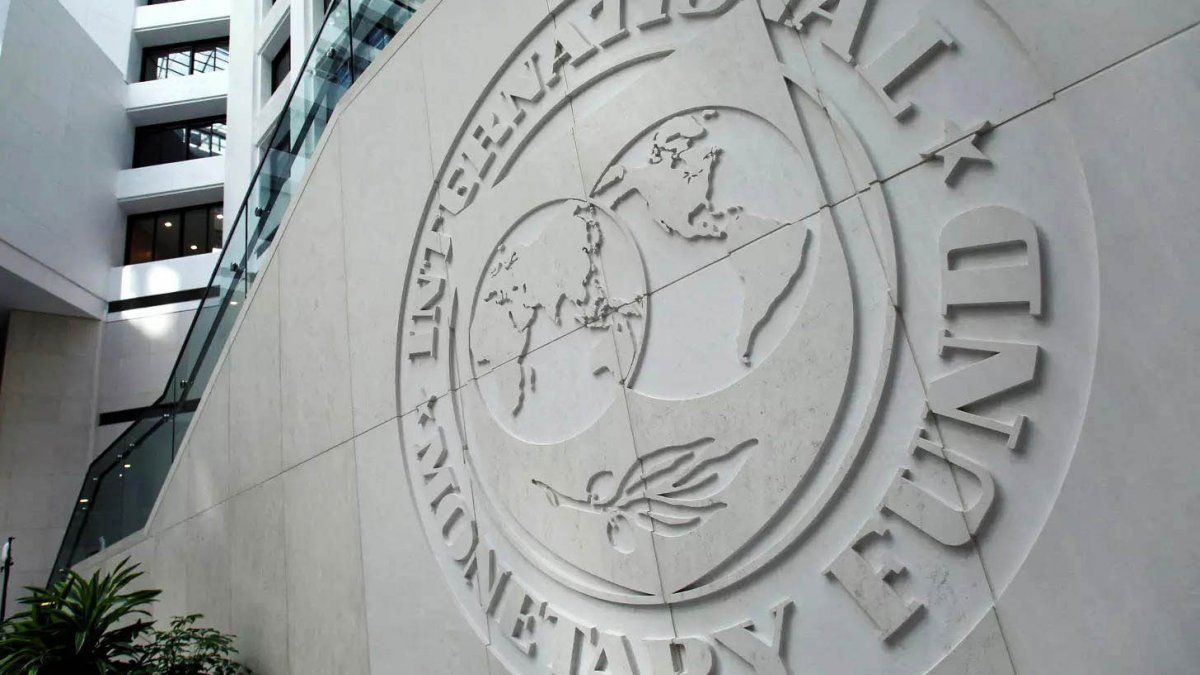The IMF Board will approve this Wednesday the agreement at the staff level that Argentina reached for the seventh review of the extended facilities program. Besides, will make public the staff recommendation to raise the reference interest rate above inflation and will make it clear – with some comments – that it remains in a “flexible” position with respect to the upcoming reviews of the Argentine accounts (there are 10 in total for the entire program), which opens the possibility for the Casa Rosada to reach until the end of the year without major setbacks.
The organization’s objective is clear: it wants the Government to “conclude” the current program and “splice in” a new program in December or at the beginning of 2025. At least two sources – one from the organization and another from the Government – confirmed it. In this way, the IMF Board will enable the disbursement of US$ 4.7 billion. These are funds that the Government needs to pay maturities at least until April.
It has a new program and waiver
The conversations happen. Chief of Staff Nicolás Posse, who is in Washington, met yesterday with Michael Kaplan, Assistant Secretary for Western Hemisphere Affairs, and Jay Shambaugh, Undersecretary for International Affairs. He also held another meeting with Gita Gopinath, the organization’s number two at the IMF headquarters. In other aspects, Posse explores what characteristics the new program that the country will have to subscribe to could have.
The Board’s decision comes the same day that the debate in Congress on the omnibus law will begin and that The BCRA must disburse US$2.7 billion (an additional payment will be added tomorrow).
But there is more. In the complementary information that the Fund will release and that has previously been discussed between Minister Caputo, Nicolás Posse and the head of the BCRA Santiago Bausili, together with Luis Cubeddu, deputy director of the Western Hemisphere, it will be stated that The IMF will enable the requested waivers to continue the program. If the Government’s intention was to continue with the current Extended Facilities Program, the IMF will enable that objective today.
From this it follows that the IMF is interested in “saving” the program. In this sense, According to sources in Washington, the Fund was surprised by the letter of presentation of the information package submitted to the organization that was sent by the Government and that was described by the source as “a dark description of the economic reality that Javier Milei inherited.”
The goals have changed – they were recalibrated – and that, for now, has left the organization satisfied, although there are already conversations to see if the Government decides to “connect” the end of the current program with another starting at the end of the year. Quick reminder, between December 2023 and December 2024, the BCRA must add US$10 billion of which it already collected about US$4 billion.
Rates, fixed term and the Government’s response
But also Kristalina Georgieva will recommend, among other things, something essential: that the Government raise the reference interest rate until it becomes positive in real terms. This would imply placing that figure in the area of 15-20% per month. As Ámbito learned, The organization is concerned about the accumulation of reserves and one way to guarantee greater purchasing power for the BCRA is precisely to enable this mechanism.
The other relevant fact is that the Government will respond negatively to this recommendation. A high source from the Ministry of Economy told Ámbito that this is not in the BCRA’s plans and that, in part, this position has already been made known to the IMF.. The source also maintained that, at least for the next 60 days, there will be no major changes in this regard. The reason is as follows: The Government does not want to imply that inflation will remain at high levels. The last figure measured by Indec marked 25% for December and although January seems to show a lower figure, it could even be higher than the 15% that is speculated.
Inflation, fixed term and dollar
Strictly speaking, The source maintains that the BCRA will seek to maintain the current rate levels “to imply that we are not comfortable with this level of inflation and that we are aiming for a significant drop in that indicator, until the current level of the rate becomes – in real terms – positive.” That is to say, the Government seeks to bring inflation down, in a first stage, to the area of 10% monthly. An ambitious goal if we take into account not only the impact of the December devaluation, but also the changes in relative prices, especially in energy and rates.
This decision may have an important consequence. The exchange gap has been stretching in recent weeks – yesterday the MEP dollar fell to the $1,200 area and the CCL to $1,260 – as the pesos in circulation find no alternative to the escalating inflation. The greater the gap, the lower the liquidation of the export sector. The 2% crawling peg anchor maintained by the BCRA is beginning to be looked at closely, because many anticipate a logical movement.
Fiscal promises that no longer travel by bus
Another high-ranking source who participates in the conversations with the Fund has expressed another important piece of information.: the IMF is not concerned whether the Government obtains, as is likely, or not, a guarantee with the omnibus law. Is the board concerned that the Government has had to withdraw the fiscal chapter of the legislative package that is being voted on? What do the main shareholders of the organization think?
The response was: “the IMF does not usually take a negotiation in Congress as part of a program. It is not an element to evaluate a Government because, to a large extent, it does not depend on an Executive (power), but is almost always at the mercy of a negotiation. The general direction of the stabilization plan is of concern. And the reduction of spending. May the commitment be sustained.”
Source: Ambito




